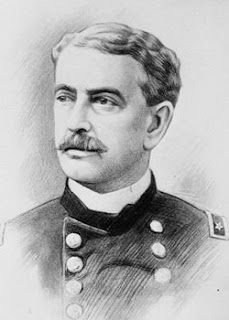Major Robert Anderson, commander of United States forces in Charleston Harbor, moved his entire command, under cover of twilight darkness to Fort Sumter, 150 years ago tonight. There, he hoped, he could keep his command secure from the growing Charlestonian mobs.
He thought, hoped, and prayed this move might also give the entire country some breathing room.
Had President Buchanan supported Anderson fully, Civil War might very well have been averted.
Such, of course, was not the case.
At a little after 8pm, Major Anderson wrote to his wife: “Thanks be to God. I give them with my whole heart for His having given me the will, and shewn me the way to bring my command to this Fort. I can now breathe freely. The whole force of S. Carolina would not venture to attack us. Our crossing was accomplished between six and eight o’clock. I am satisfied that there was no suspicion of what we were going to do. I have no doubt that the news of what I have done will be telegraphed to New York this night. We saw the signal rockets thrown up all around just as our last boat came over. I have not time to write more—as I must make my report to the Ad. Genl. . . . Praise be to God for His merciful kindness to us. I think that the whole country North and South should thank Him for this step.” [quoted in Lawton, Major Robert Anderson (1911), 8-9]



